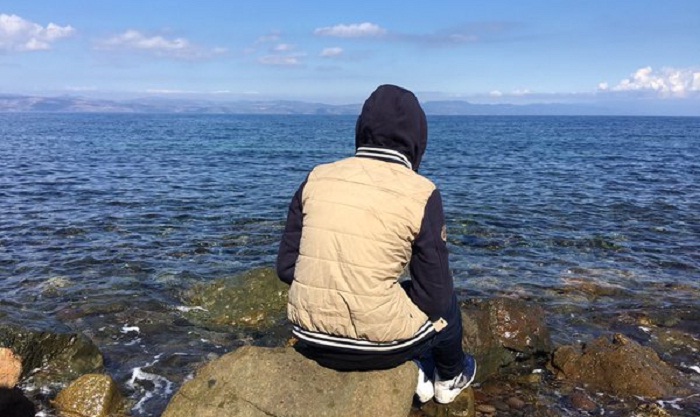Hundreds of failed Afghan asylum seekers who fled to the UK as children face deportation following a court ruling. Many have gone on the run, refusing to be sent back to the war-torn country.
Ismat makes his way nervously through the streets of south London. He looks over his shoulder every time he hears a distant police siren.
He is an illegal immigrant and has been in hiding for more than three years, living in constant fear that the authorities will track him down.
“It’s really hard hiding. When I’m outdoors and see the police, I think they are just going to pick me up from the road, arrest me and send me back to Afghanistan,” he explains.
Ismat, 20, fled the war in Afghanistan and came to the UK on his own when he was 14. He was refused asylum but was allowed to stay in Britain for four years, during which time he studied and made a life with friends and a girlfriend.
Before turning 18, Ismat was sent his removal papers and that’s when he went on the run. He has been moving around from place to place since.
“I stay with my friends sometimes. I’m not allowed to work and wherever I go they ask for a visa and my National Insurance number, so I can’t even rent a room. I’m just a homeless person,” he states.
Over the last 10 years, more than 7,000 children have fled Afghanistan on their own and claimed asylum in the UK. Those who have been refused are given a temporary home in Britain until they turn 18.
After that, they have to leave the UK voluntarily or wait to be deported. But many have instead chosen to go underground. Some are working illegally, others are constantly on the move – living on handouts from friends. Ismat may not have much of a life in the UK, but he says he will do what it takes not to be sent back to Afghanistan.
“If my life was safe, then I would go home. But I will be killed if I’m sent back, that’s why I’m illegal and I’m hiding here.”
Refugee campaigners fear that more young Afghans, who have been refused asylum, may go under the radar now that a ban on sending them back has been lifted.
All deportations to the country had been suspended since August last year while a group of Afghans challenged their removal in the Court of Appeal, on the grounds that it was too dangerous for them to be sent back.
But the group lost and the court has now lifted the ban on chartered flights to Kabul, Afghanistan’s capital city.
A Home Office spokesman explains that “where people establish a genuine need for protection, we will grant refuge.
“When someone is found to no longer need our protection, we expect them to leave the country voluntarily. Where they do not, we will seek to enforce their departure.”
The Home Office says it cannot tell us when the next chartered flights to Kabul will be scheduled. Toufique Hossain, a solicitor for some of the Afghans in the court case, believes the judgment was based on out-of-date evidence about the security conditions in Afghanistan.
His team is rushing through fresh asylum claims with new evidence on the deteriorating situation. Last year saw the highest number of civilian casualties since UN records began in 2009.
“We have major concerns that Afghan nationals are being returned to a country that is in clear internal armed conflict. These people will be subject to a breach of their human rights and to persecution by the likes of the Taliban,” he explains.
‘I couldn’t stop crying’
According to research by the Bureau of Investigative Journalism, the Home Office has deported more than 2,000 failed child asylum seekers to Afghanistan since 2007.
Hikmat, 21, was one of them. He came to the UK when he was 14, having fled Afghanistan after his parents were killed by the Taliban because his father worked as a driver for US soldiers.
He lived and studied in Britain until he was 18 and was then deported to Kabul three years ago. “When I got there, I couldn’t stop crying – I had no family, I had no-one. I was so scared. I saw people carrying guns in the streets, it was so dangerous,” he recalls.
Hikmat was convinced he would be killed by the Taliban if he stayed in Afghanistan, so after less than two months in the country, he fled. He paid traffickers more than £8,000 to bring him back to the UK, making the same journey he made as a child.
It took nine months to get back to the UK and Hikmat has been underground since entering the country illegally two years ago.
“I feel safe in England but I’m not happy that I have to hide – it’s too hard. I know if they find me, they will definitely send me back again,” he says. (BBC)
 Afghanistan Times
Afghanistan Times




